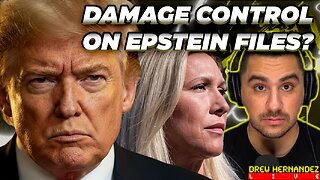Premium Only Content

Who's Fallout 76 Camp is That? Explosions
An explosion is a rapid increase in volume and release of energy in an extreme manner, usually with the generation of high temperatures and the release of gases. Supersonic explosions created by high explosives are known as detonations and travel via supersonic shock waves. Subsonic explosions are created by low explosives through a slower burning process known as deflagration.
Natural
Explosions can occur in nature due to a large influx of energy. Most natural explosions arise from volcanic or stellar processes of various sorts. Explosive volcanic eruptions occur when magma rising from below has much dissolved gas in it; the reduction of pressure as the magma rises causes the gas to bubble out of solution, resulting in a rapid increase in volume. Explosions also occur as a result of impact events and in phenomena such as hydrothermal explosions (also due to volcanic processes). Explosions can also occur outside of Earth in the universe in events such as supernovae. Explosions frequently occur during bushfires in eucalyptus forests where the volatile oils in the tree tops suddenly combust.[1]
Astronomical
Among the largest known explosions in the universe are supernovae, which result from the sudden starting or stopping of nuclear fusion gamma-ray bursts in stars, whose nature is still in some dispute. Solar flares are an example of a common explosion on the Sun, and presumably on most other stars as well. The energy source for solar flare activity comes from the tangling of magnetic field lines resulting from the rotation of the Sun's conductive plasma. Another type of large astronomical explosion occurs when a very large meteoroid or an asteroid impacts the surface of another object, such as a planet.
Chemical
The most common artificial explosives are chemical explosives, usually involving a rapid and violent oxidation reaction that produces large amounts of hot gas. Gunpowder was the first explosive to be discovered and put to use. Other notable early developments in chemical explosive technology were Frederick Augustus Abel's development of nitrocellulose in 1865 and Alfred Nobel's invention of dynamite in 1866. Chemical explosions (both intentional and accidental) are often initiated by an electric spark or flame in the presence of Oxygen. Accidental explosions may occur in fuel tanks, rocket engines, etc.
Electrical and magnetic
A high current electrical fault can create an 'electrical explosion' by forming a high energy electrical arc which rapidly vaporizes metal and insulation material. This arc flash hazard is a danger to persons working on energized switchgear. Also, excessive magnetic pressure within an ultra-strong electromagnet can cause a magnetic explosion.
Mechanical and vapor
Strictly a physical process, as opposed to chemical or nuclear, e.g., the bursting of a sealed or partially sealed container under internal pressure is often referred to as an explosion. Examples include an overheated boiler or a simple tin can of beans tossed into a fire.
Boiling liquid expanding vapor explosions are one type of mechanical explosion that can occur when a vessel containing a pressurized liquid is ruptured, causing a rapid increase in volume as the liquid evaporates. Note that the contents of the container may cause a subsequent chemical explosion, the effects of which can be dramatically more serious, such as a propane tank in the midst of a fire. In such a case, to the effects of the mechanical explosion when the tank fails are added the effects from the explosion resulting from the released (initially liquid and then almost instantaneously gaseous) propane in the presence of an ignition source. For this reason, emergency workers often differentiate between the two events.
Nuclear
Main articles: Nuclear explosion and Effects of nuclear explosions
In addition to stellar nuclear explosions, a nuclear weapon is a type of explosive weapon that derives its destructive force from nuclear fission or from a combination of fission and fusion. As a result, even a nuclear weapon with a small yield is significantly more powerful than the largest conventional explosives available, with a single weapon capable of completely destroying an entire city.
-
 15:04
15:04
Lorespade
2 years agoDeed And Shares Payout Show Weekly for Entropia Universe Oct 9th 2023
511 -
 22:26
22:26
GritsGG
12 hours ago4000th Warzone Victory! Most Winning Warzone Player!
4.18K2 -
 11:47
11:47
XDDX_HiTower
15 hours agoGZW LEVELS UP HARD WITH A PERFORMANCE AND GOL BULLSEYE
4.94K2 -
 31:59
31:59
Stephen Gardner
8 hours ago🔥TOP Dems CAUGHT in Epstein Payoff Scandal + Trump $2000 Check UPDATE!
11.3K58 -
 2:25:05
2:25:05
The Pascal Show
1 day ago $2.21 earned'THERE'S NOTHING TO HIDE?!' Trump SUDDENLY Urges House Republicans To Vote Release Epstein Files
5.6K1 -
 1:45:20
1:45:20
The Michelle Moore Show
19 hours ago'A Jaw-dropping Prophetic Word From the UFC Brawl On Saturday Night' Guest, Lt. Mark Taylor: The Michelle Moore Show (Nov 17, 2025)
20K41 -
 LIVE
LIVE
Lofi Girl
3 years agolofi hip hop radio 📚 - beats to relax/study to
329 watching -
 2:08:23
2:08:23
FreshandFit
13 hours agoDeVory Darkins Realizes Women Aren't Even TRYING To Get Married
198K73 -
 5:40:05
5:40:05
Drew Hernandez
1 day agoTRUMP DOES DAMAGE CONTROL AFTER MTG FALLOUT & DEFENDS TUCKER CARLSON!
28K16 -
 27:05
27:05
Robbi On The Record
8 days ago $20.94 earnedThe Secret to Aging Strong: What Your Body’s Been Trying to Tell You
76.3K6